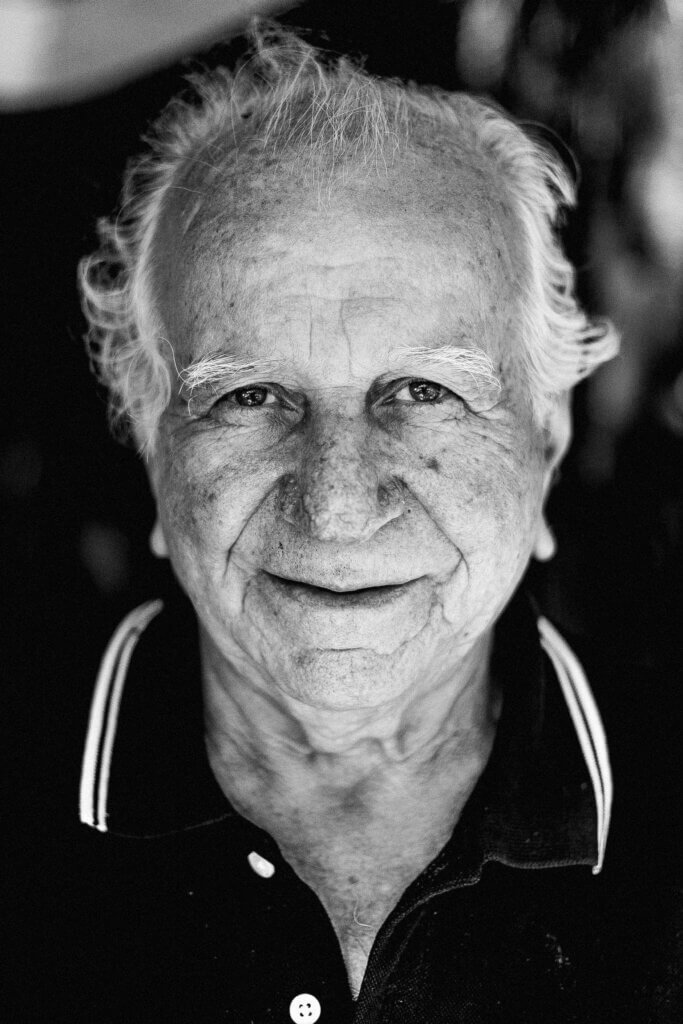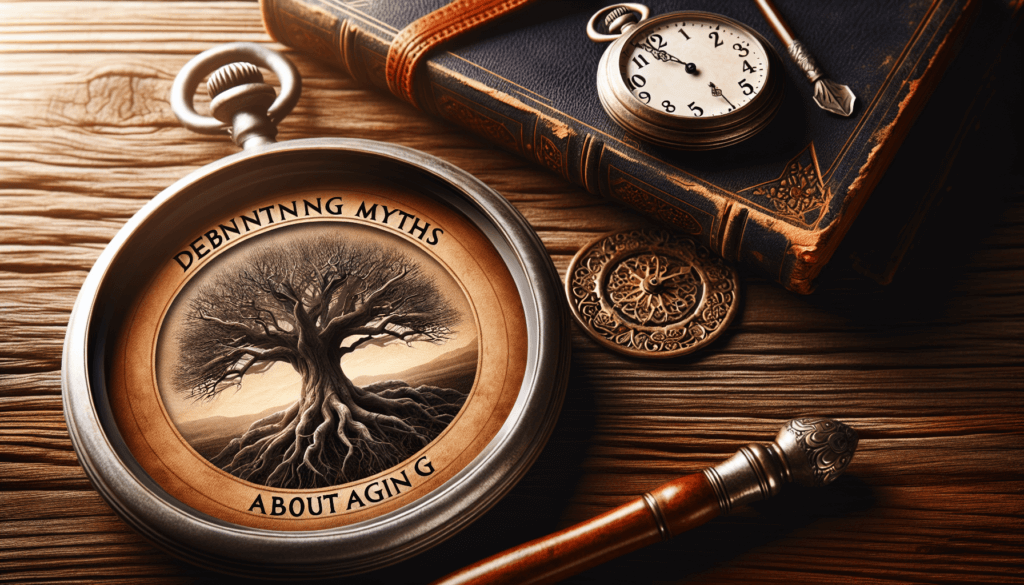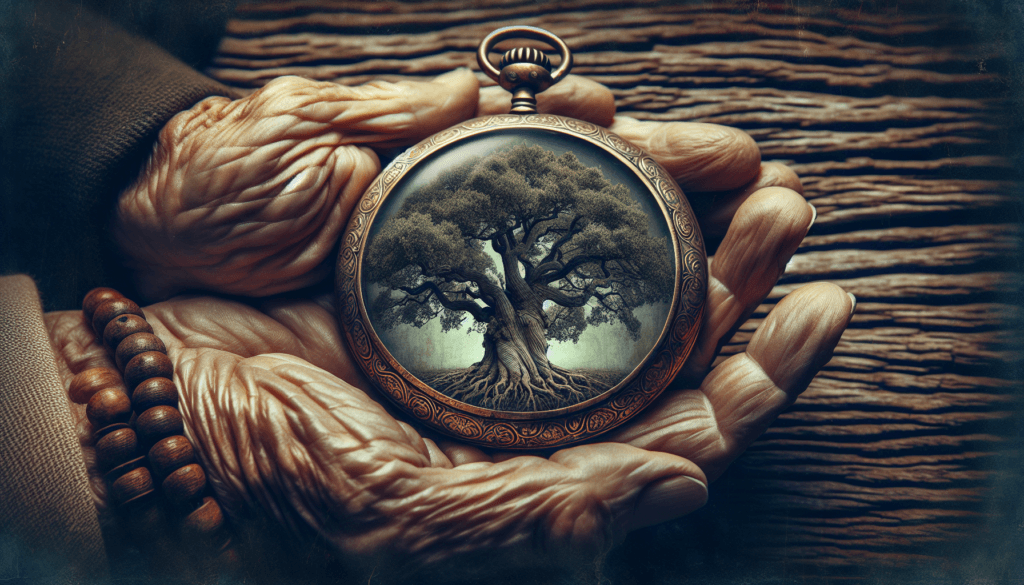Ah, the myths about aging – they seem to be everywhere, don’t they? Whether it’s that your memory goes downhill, wrinkles are inevitable, or gray hair is a sign of growing old, these misconceptions have become deeply ingrained in our minds. But fear not! In this article, we’re here to set the record straight and debunk the most popular myths about aging. Prepare to be pleasantly surprised as we unravel the truth behind these age-old misconceptions.

Myth: Aging is inevitable and cannot be slowed down
Reality: Lifestyle factors and medical advancements can slow down the aging process
Aging is often seen as an inevitable process that cannot be avoided or slowed down. However, this is far from the truth. While it is true that everyone will age to some extent, there are lifestyle factors and medical advancements that can greatly slow down the aging process and help you maintain a youthful and vibrant life.
One of the key lifestyle factors that can affect the aging process is a healthy diet. Eating a balanced diet that is rich in fruits, vegetables, whole grains, and lean proteins can provide your body with the essential nutrients it needs to function optimally. Antioxidants found in many fruits and vegetables can help protect your cells from damage and slow down the aging process.
Regular exercise is another crucial aspect of slowing down the aging process. Exercise not only helps you maintain a healthy weight and keep your cardiovascular system strong, but it also has numerous benefits for your overall well-being. It can help improve muscle strength and flexibility, boost cognitive function, reduce the risk of chronic diseases, and even improve your mood and mental health.
In addition to lifestyle factors, medical advancements have also played a significant role in slowing down the aging process. With advancements in anti-aging medicine, there are now various treatments and procedures available that can help address the signs of aging. From anti-wrinkle creams to cosmetic procedures such as Botox or dermal fillers, there are options for those who wish to maintain a youthful appearance.
It’s important to note that while lifestyle factors and medical advancements can slow down the aging process, aging itself is a natural part of life. It is crucial to embrace the aging process and focus on aging gracefully rather than trying to reverse it entirely. Taking care of yourself and making healthy choices can go a long way in ensuring that you age well and maintain a high quality of life.
Subheading 2
Subheading 3
Myth: Memory loss is a normal part of aging
Reality: Age-related memory decline is not the same as significant memory loss
As we age, it is common to experience some changes in our memory and cognitive function. However, there is a prevalent myth that memory loss is an inevitable part of aging. The reality is that age-related memory decline is not the same as significant memory loss or cognitive impairment.
It is normal to experience occasional memory lapses such as forgetting someone’s name or misplacing your keys. These minor memory changes are often the result of natural aging processes, such as the slowing down of brain processing speed and changes in brain structure. They typically do not significantly interfere with daily functioning or impact overall cognitive abilities.
However, significant memory loss and cognitive impairment are not a normal part of the aging process. Conditions such as Alzheimer’s disease and other types of dementia can cause severe and progressive memory loss and cognitive decline. It is essential to distinguish between age-related memory decline and significant memory loss associated with dementia.
There are several lifestyle factors and habits that can help maintain and improve memory as you age. Engaging in mentally stimulating activities, such as puzzles, reading, and learning new skills, can help keep your brain active and maintain cognitive function. Regular exercise, a healthy diet, and getting enough sleep are also vital for optimal brain health.
If you are concerned about your memory or notice significant changes in your cognitive function, it is important to consult with a healthcare professional. They can help determine whether your memory changes are a normal part of aging or if further evaluation is needed to rule out any underlying conditions.
Subheading 2
Subheading 3

Myth: Older adults are not interested in sex
Reality: Many older adults maintain a healthy and fulfilling sex life
It is a common misconception that as you get older, your interest in sex diminishes. However, the reality is that many older adults continue to maintain a healthy and fulfilling sex life well into their later years.
Sexual desire and intimacy are not solely determined by age but are influenced by various factors such as individual preferences, overall health, and relationship dynamics. While it is true that certain physical changes may occur with age, such as hormonal shifts or changes in sexual functioning, it does not necessarily mean that older adults lose interest in sex.
In fact, older adults often have more free time and fewer responsibilities, allowing them to explore their sexual desires and enjoy their intimacy with their partners. With age comes wisdom and experience, which can enhance sexual pleasure and intimacy. Older adults may have a better understanding of their own bodies and their partner’s, leading to a more satisfying and fulfilling sexual experience.
Open communication and maintaining a healthy relationship with your partner are essential for a fulfilling sex life as you age. Talking openly about your desires, concerns, and any changes in sexual function can help address any challenges and find ways to maintain a satisfying sex life. It is also important to prioritize your sexual health and seek appropriate medical advice or treatment if needed.
It is crucial to debunk the myth that older adults are not interested in sex, as it perpetuates ageism and negates the natural desires and needs of older individuals. Everyone’s sexual needs and desires are unique, regardless of age, and it is essential to respect and support individuals’ choices and preferences.
Subheading 2
Subheading 3
Myth: Aging means becoming weak and frail
Reality: Regular exercise and proper nutrition can help maintain strength and vitality in older adults
Another prevalent myth about aging is that it inevitably leads to weakness and frailty. While it is true that muscle mass naturally declines with age, and certain age-related changes can impact strength and mobility, this does not mean that aging automatically equates to weakness.
Regular exercise plays a crucial role in maintaining strength and vitality as you age. Engaging in strength training exercises, such as weightlifting or resistance band workouts, can help preserve and build muscle mass. It can also improve bone density, balance, and overall physical function, reducing the risk of falls and injuries.
In addition to exercise, proper nutrition is essential for maintaining strength and vitality in older adults. Consuming a balanced diet that includes adequate protein, vitamins, and minerals can help support muscle health and prevent age-related muscle loss. It is also important to stay hydrated and consider any specific nutritional needs or dietary restrictions you may have.
It’s important to note that while regular exercise and proper nutrition can help maintain strength and vitality, it is also essential to listen to your body and adjust your exercise routine and dietary choices to suit your individual needs and capabilities. Consulting with a healthcare professional or a certified fitness expert can provide guidance tailored to your specific circumstances.
By incorporating regular exercise and maintaining a balanced diet, you can defy the myth of inevitable weakness and frailty associated with aging. It is possible to stay strong, active, and independent as you age, allowing you to enjoy a high quality of life well into your later years.
Subheading 2
Subheading 3

Myth: Old age means loneliness and social isolation
Reality: Many older adults maintain active social lives and strong relationships
A common misconception about aging is that it inevitably leads to loneliness and social isolation. While it is true that some older adults may face social challenges, it is essential to recognize that many maintain active social lives and strong relationships well into their later years.
Maintaining social connections and nurturing relationships are important aspects of overall well-being, regardless of age. Older adults often have extensive networks of family, friends, and acquaintances that can provide companionship and support. Engaging in social activities and participating in community events can also help foster connections and combat loneliness.
Technology has also played a significant role in bridging the gap between older adults and their loved ones. With the rise of social media platforms, video calling services, and online communities, older adults now have more opportunities to stay connected and engaged with others. It has become easier to share experiences, stay in touch with family and friends, and even meet new people with shared interests.
Community organizations, senior centers, and local clubs often offer a range of activities and programs specifically tailored to older adults. From exercise classes and hobby groups to volunteer opportunities and educational workshops, these resources can provide opportunities for social interaction and engagement.
It’s important to challenge the myth that old age means loneliness and social isolation. By recognizing the importance of social connections and actively seeking out opportunities to engage with others, older adults can enjoy rich and fulfilling social lives.
Subheading 2
Subheading 3
Myth: Older adults are not capable of learning new things
Reality: Older adults can continue to learn and adapt throughout their lives
It is a common misconception that older adults are not capable of learning new things or acquiring new skills. However, the reality is that the human brain has a remarkable capacity for learning and adaptation throughout our lives.
While it is true that certain cognitive functions may decline with age, such as processing speed or working memory, older adults can compensate for these changes by drawing on their wealth of knowledge and experience. Research has shown that older adults can still learn and retain new information, develop new skills, and adapt to new situations.
In fact, many older adults embrace lifelong learning and actively seek out opportunities to expand their knowledge and skills. This can include pursuing formal education, taking up new hobbies, or exploring different areas of interest. Learning new things not only provides mental stimulation but can also contribute to a sense of personal fulfillment and purpose.
Technology has also made it easier for older adults to access educational resources and learning opportunities. Online courses, webinars, and educational apps provide convenient ways to learn new skills or delve into areas of interest from the comfort of home. Many community colleges and universities also offer classes specifically tailored to the needs and interests of older adults.
It’s important to challenge the myth that older adults are not capable of learning new things. By embracing a lifelong learning mindset, older adults can continue to grow, adapt, and explore new horizons throughout their lives.
Subheading 2
Subheading 3

Myth: Aging automatically leads to mental decline and dementia
Reality: While some cognitive decline may occur with age, not all older adults will develop dementia
A prevalent myth about aging is that it automatically leads to mental decline, such as memory problems and dementia. While it is true that some cognitive changes may occur with age, it is important to clarify that not all older adults will experience significant cognitive decline or develop dementia.
Normal age-related cognitive changes typically involve a slight decline in processing speed, working memory, and attention. However, they do not usually impair overall cognitive function or interfere with daily activities. These changes are considered a normal part of the aging process and are distinct from the severe cognitive impairment associated with dementia.
Dementia is a syndrome characterized by a significant decline in memory, thinking, behavior, and the ability to perform everyday activities. While age is a risk factor for developing dementia, it is not an inevitable consequence of growing older. Many older adults maintain their cognitive abilities and live without significant impairment as they age.
It’s important to differentiate between normal age-related cognitive changes and signs of significant cognitive decline. If you are concerned about your cognitive function or notice any changes that affect your daily life, it is essential to consult with a healthcare professional for a proper evaluation and diagnosis.
By challenging the myth that aging automatically leads to mental decline and dementia, we can foster a more positive and realistic understanding of the aging process. With proper care and support, older adults can maintain their cognitive abilities and enjoy a fulfilling and independent life.
Subheading 2
Subheading 3
Myth: Older adults are not able to work or be productive
Reality: Many older adults choose to work or engage in productive activities well into their later years
One of the common myths about aging is that older adults are not able to work or be productive. However, the reality is that many older adults continue to work or engage in meaningful and productive activities well into their later years.
Retirement is no longer seen as a hard and fast rule for older adults. Many individuals choose to work past the traditional retirement age for various reasons, such as financial security, personal fulfillment, or a desire to stay active and engaged. With improvements in healthcare and overall well-being, older adults are often able and willing to contribute their skills and expertise to the workforce.
Furthermore, older adults can bring a wealth of knowledge, experience, and wisdom to their workplaces and communities. Their years of experience and valuable insights can be incredibly valuable in mentoring younger colleagues or contributing to decision-making processes. Many organizations recognize the value of older workers and actively seek to create age-inclusive workplaces.
Even if paid work is not a viable option, older adults can engage in various productive activities that bring fulfillment and contribute to society. Volunteering, mentoring, caregiving, and pursuing hobbies or creative endeavors are all ways in which older adults can continue to be productive and make a positive impact.
It’s important to challenge the myth that older adults are not able to work or be productive. By recognizing and supporting their abilities and contributions, we can create a society that values and includes individuals of all ages.
Subheading 2
Subheading 3

Myth: Aging means losing interest in hobbies and activities
Reality: Older adults can continue to pursue their interests and enjoy hobbies throughout their lives
As we age, it is common for individuals to develop the perception that older adults lose interest in hobbies and activities they once enjoyed. However, the reality is that older adults can continue to pursue their interests and enjoy hobbies throughout their lives.
Engaging in hobbies and activities that bring joy and fulfillment can have numerous physical, mental, and emotional benefits. It can provide a sense of purpose, reduce stress, enhance cognitive function, and promote overall well-being. Hobbies also provide opportunities for social interaction and can help older adults maintain a sense of identity and connectedness.
Whether it’s gardening, painting, playing a musical instrument, or participating in sports activities, older adults can adapt their hobbies to suit their abilities and interests. It’s important to recognize that one’s interests may evolve with age, and new hobbies may emerge. Exploring new hobbies or revisiting past ones can be a fulfilling and enriching experience.
Community centers, senior centers, and local clubs often offer a range of activities and classes tailored specifically to older adults’ interests and preferences. These resources provide opportunities for like-minded individuals to come together, share experiences, and engage in meaningful activities.
By challenging the myth that aging means losing interest in hobbies and activities, we can encourage older adults to continue pursuing their passions and experiencing the joy and fulfillment that comes with engaging in activities that bring them happiness.
Subheading 2
Subheading 3
Myth: Older adults are a burden on society
Reality: Older adults contribute to society through their knowledge, wisdom, and experience
A pervasive myth about aging is that older adults are a burden on society. This misconception negates the valuable contributions that older adults can make and fails to recognize the knowledge, wisdom, and experience they bring to the table.
Older adults have a wealth of knowledge and experience that can be incredibly valuable for individuals, communities, and society as a whole. Their experiences from different walks of life can provide unique perspectives and insights that younger generations may not possess. Mentoring younger individuals and sharing their wisdom can help bridge the generational gap and promote intergenerational understanding.
Additionally, older adults often play a vital role in caregiving. Many grandparents provide essential support to their families by helping to raise grandchildren or assisting with caregiving responsibilities. They bring a wealth of love, care, and stability to their families, contributing significantly to the well-being of their loved ones.
Volunteerism is another way in which older adults contribute to society. Many retirees and older adults dedicate their time and expertise to various causes, organizations, and community initiatives. They contribute their skills, knowledge, and time to make a positive impact in their communities, supporting vulnerable populations, and driving positive change.
It is important to recognize and value the contributions that older adults make to society. By fostering age-inclusive communities and creating opportunities for intergenerational collaboration, we can make the most of the knowledge, wisdom, and experience of older adults and build a more cohesive and thriving society.
Subheading 2
Subheading 3
By debunking the most popular myths about aging, we can challenge ageism and foster a more accurate and positive understanding of the aging process. It is essential to recognize that aging is a unique and diverse experience for every individual. By promoting age-inclusive attitudes, providing support and resources, and celebrating the strengths and contributions of older adults, we can create a society that values and supports individuals of all ages.


